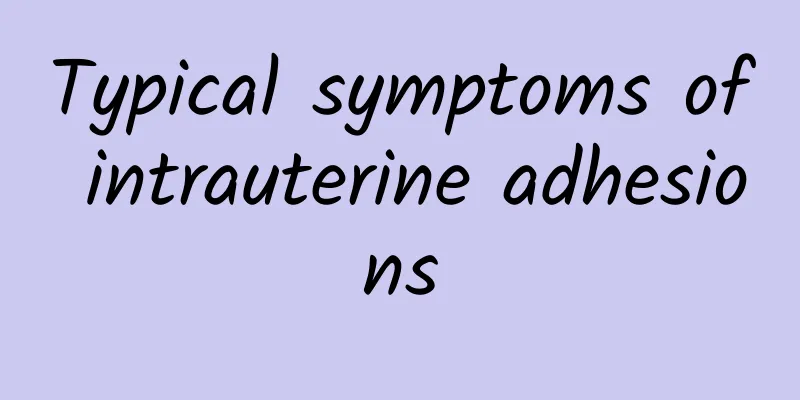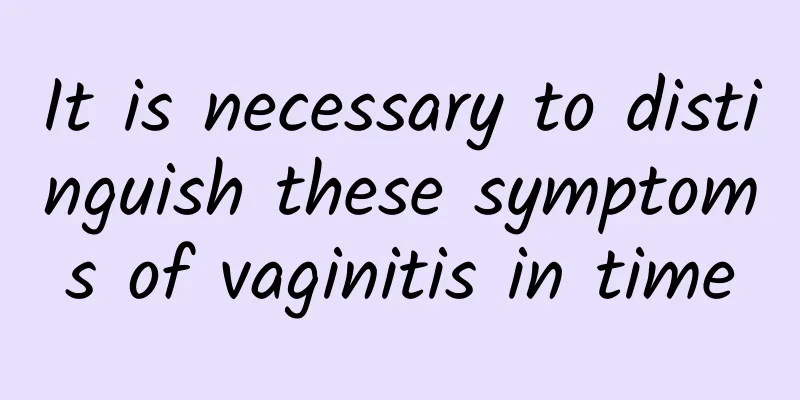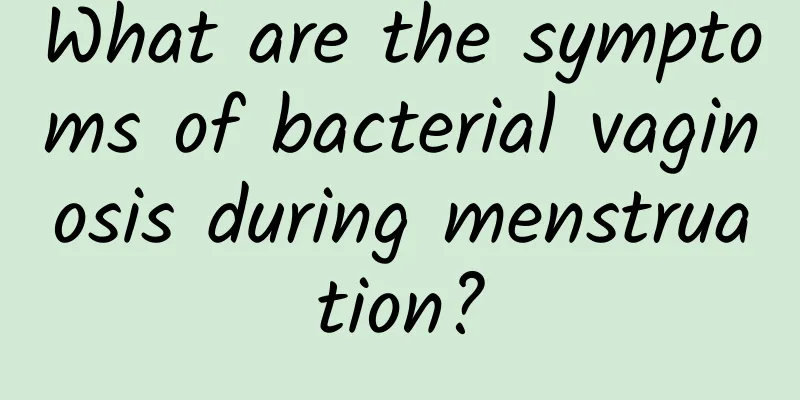Typical symptoms of intrauterine adhesions

|
Typical symptoms of intrauterine adhesions include abnormal menstruation, abdominal pain and infertility. If these symptoms occur, you should seek medical attention immediately. Intrauterine adhesions refer to abnormal connections of tissues in the uterine cavity, which may be caused by infection, trauma or surgery and require professional diagnosis and treatment. 1) Abnormal menstruation. Uterine adhesions often cause changes in the menstrual cycle, such as decreased menstrual flow or amenorrhea. This is because the adhesions in the uterine cavity prevent the normal shedding of the endometrium. Once patients find menstrual disorders, they should consult a gynecologist as soon as possible and, if necessary, undergo an ultrasound examination to determine the condition of the uterine cavity. 2) Abdominal pain. Unexplained lower abdominal pain may also be a sign of intrauterine adhesions. This pain may be related to the chronic inflammation associated with adhesions. Patients can undergo imaging examinations, such as hysteroscopy, at professional medical institutions to confirm the diagnosis. 3) Infertility. Uterine adhesions can affect the morphology and function of the uterus, interfere with normal embryo implantation, and lead to infertility. For women who want to get pregnant but have not been successful for a long time, uterine cavity examination is very necessary to rule out the possibility of uterine adhesions. In terms of treatment methods, intrauterine adhesions generally require professional medical intervention. Common methods include hysteroscopic adhesion separation, hormone or drug therapy, and physical therapy. Hysteroscopic surgery can directly remove adhesions and restore the normal shape of the uterine cavity; while hormone therapy is often used as an auxiliary after surgery to promote the regeneration of the endometrium; at the same time, physical therapy such as electrical stimulation and infrared therapy can also help improve symptoms. Patients should note that early detection and professional treatment of intrauterine adhesions are critical to improving prognosis. If the above symptoms occur, you should pay great attention and seek medical attention in time to avoid more serious complications. Maintaining good hygiene habits and regular gynecological examinations in daily life are also important measures to prevent intrauterine adhesions. Through timely medical intervention and comprehensive treatment, most patients can restore the normal function of the uterus and improve fertility. |
<<: On which day should I go for a checkup for abnormal leucorrhea?
>>: Can cervical hypertrophy lead to cervical precancerous lesions?
Recommend
What are the main hazards of threatened miscarriage in women?
Many women want to know what the main dangers of ...
Principles of dietary supplementation after artificial abortion
Artificial abortion itself is very harmful to the...
Is it difficult for women with thick endometrium to get pregnant?
The endometrium is like the "soil" for ...
Pineapples are high in fiber and low in calories, a must-have for people suffering from constipation! Nutritionist Gao Minmin reveals: 5 unexpected benefits of pineapples
Pineapple is rich in various nutrients, high in f...
Treatment of functional uterine bleeding caused by deficiency of qi and blood with Shenqi Dazao decoction
In TCM, functional uterine bleeding is believed t...
What is the difference between cervical cancer and uterine fibroids? Symptoms of cervical cancer and uterine fibroids
Cervical cancer is one of the common malignant tu...
Can I get pregnant after the pelvic effusion disappears?
Generally, patients with pelvic effusion go to th...
What are the main symptoms of pelvic inflammatory disease?
What are the main symptoms of pelvic inflammatory...
A complete guide to preventing miscarriage
Women often have a special psychological state du...
What causes ovarian cysts?
How do you get an ovarian cyst? What causes it? 1...
What are the symptoms of uterine fibroids and what are the methods to suppress uterine fibroids?
Uterine fibroid inflammation Adhesion of fibroids...
Does eating white rice cause breast cancer? Agri-Food Department: Don’t let white rice take the blame
According to media reports citing foreign news, &...
What are the main causes of pelvic inflammatory disease?
Do you know what are the main causes of pelvic in...
Can I drink honey water if I have symptoms of threatened abortion?
If you have symptoms of threatened abortion, you ...
What types of ovarian cysts are there and what should you pay attention to in your diet?
Large amounts of ascites should be differentiated...









